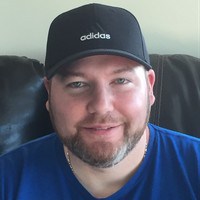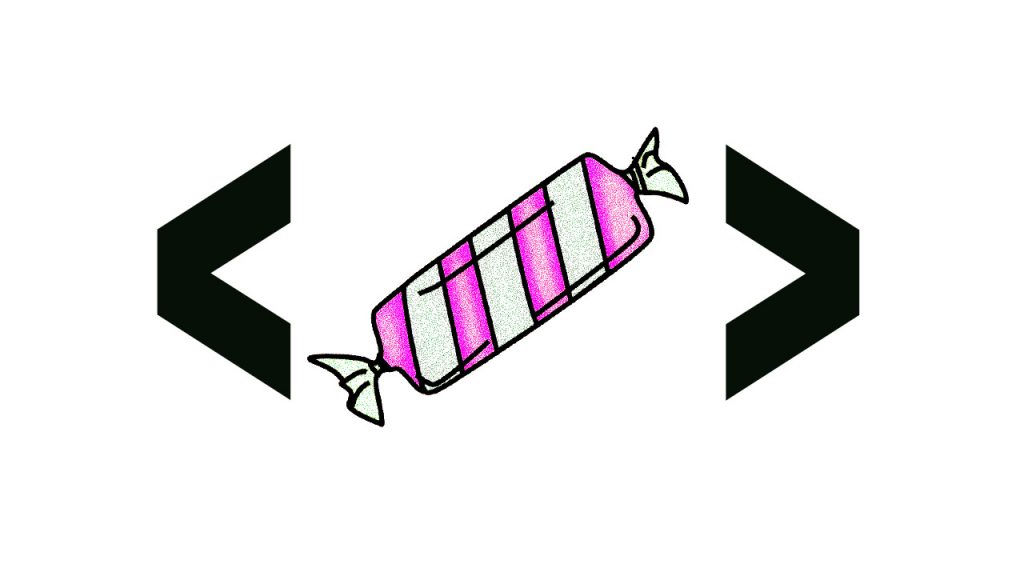Today we’re meeting Taylor in this web accessibility interview.
Welcome to the second installment of our Web Dev Interview Series.
In this series, we interview developers on what got them started, where they are now, what they’d do differently, and more.
We’re excited to introduce you to Taylor, a regular over at the RTC Discord.
Today she talks about learning web development, web accessibility and starting her own business. All while facing some unique challenges in the midst of a pandemic.
Note: Answers have been edited for clarity and space constraints.
This blog post is brought to you by RealToughCandy.io. Check out the course Portfolio Surgery and learn how to make your portfolio POP!
1. Tell us about yourself.
Hello, My name is Taylor Arndt. I was born blind since birth with an eye condition called Septo-optic dysplasia (optic nerve hypoplasia) where my optic nerve didn’t fully develop.
As a result, I am almost completely blind with the exception of lights, colors, and shadows.
I am from the state of Michigan. I grew up in a small town, so I always had some accessibility battles going on.
I have had to teach myself many skills like how to use a screen reader which is a tool blind users use which reads the content of the screen aloud to them.

Before teaching myself web development, I was your average college student studying computer science.
2. What made you get into web development?
We all know that 2020 has been a crazy year for all of us. I lost my job at the college helping students and departments with their accessibility issues due to the lack of funding that the pandemic caused.
In addition, I faced more inaccessibility problems on the academic side of the computer science department.
They basically told me, “We really can’t help you because of COVID” even though they have to because of regulations.
In addition, my math was lacking because I never had the proper math education because growing up in a small town math teachers didn’t want to teach me because they didn’t want to adapt math so a blind person could learn it.
So the perfect storm happened where I couldn’t advance until I had the math, even though I had basically taught myself lots of programming.

I then needed to support myself because of the loss of my position so I then started my own company, Taylor’s Accessibility Services, LLC, where I help companies with web accessibility remediation and other services.
I have had many clients tell me that they need web developers so I started to learn and build my skills. I took one programming class at my college, so I knew the fundamentals at least.
I am going to college at my local community college just to get some practical experience.
3. What resources have you been using to study?
I have used a huge assortment of resources for studying. Udemy, freeCodeCamp, YouTube, tutorial websites, and whatever I can find. The hardest challenge is finding resources which are accessible with screen readers.
In addition, most videos are not accessible because the instructor has to verbalize so someone who is blind can follow.
If you use terms like over here, over there, and this and that, blind users can’t see what you are talking about thus making the tutorial inaccessible. There are some good instructors that verbalize like Traversy Media.

You don’t have to say everything but you should explain what you are typing. Also, having the source code files help so we understand what the final product looks like.
4. What are your career goals?
My goal is to become a web developer to assist companies. Obviously helping make websites but in addition to make sure the websites are accessible from the start so people are not having to get sued for inaccessibility they could have prevented.
5. What would you like to see improved in terms of web accessibility?
I would like to see more training for developers on the topic. Developers know they have to make things accessible but they don’t know how.
In addition, many wait until the last minute to get things tested. You should start the accessibility testing process early to avoid huge costs at the end to fix inaccessibility.

6. And now our last question in this web accessibility interview: Do you have any advice for those with visual impairments, who are thinking about pursuing web development?
Yes, I would say that it is a good field. There are many people who work in web development who are blind.
I would try to find accessible resources so you can learn. I mentioned some earlier like freeCodeCamp, certain Udemy courses, YouTube.
I would also find a study group so you can network with other developers.
